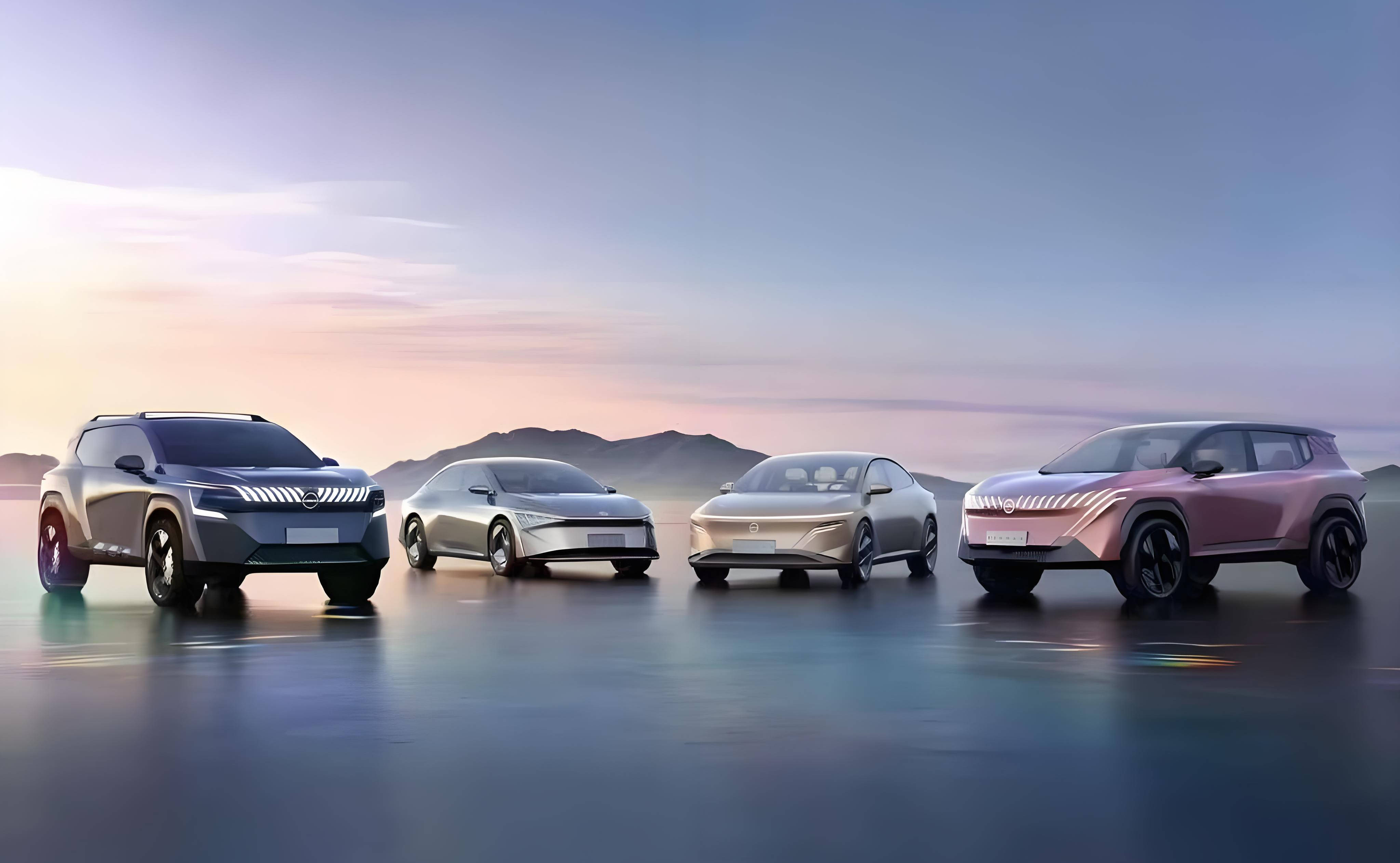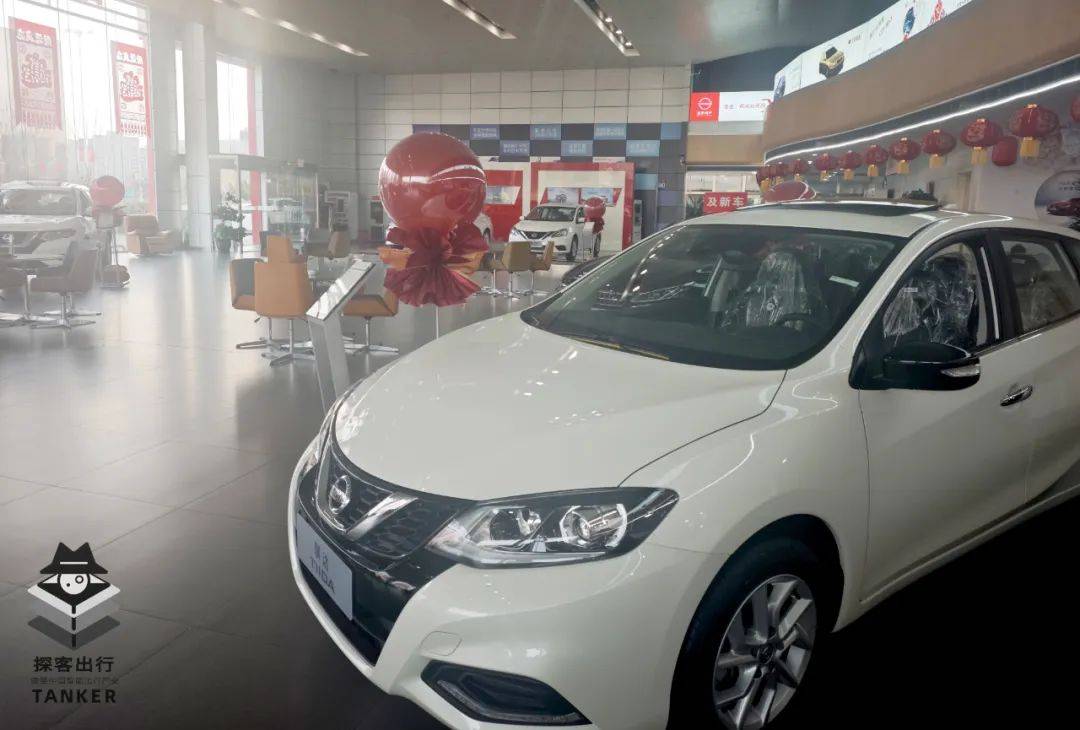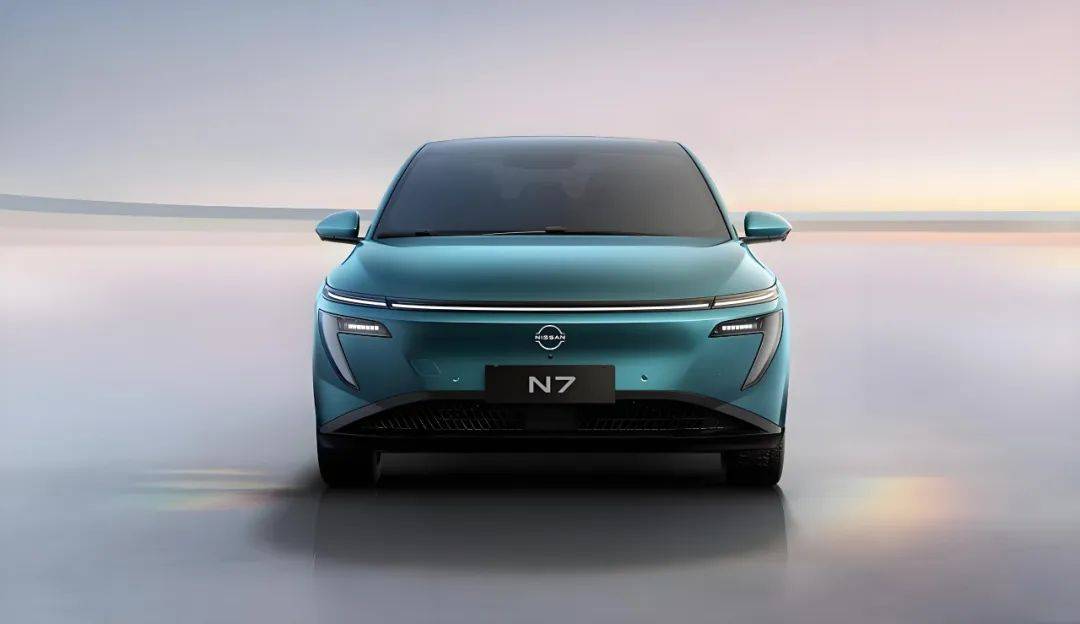Stocking Up on Dongfeng Nissan for Just 80,000 Yuan
![]() 01/17 2025
01/17 2025
![]() 568
568

Produced by | Tanke Chuxing
Art Editor | Qianqian
Audited by | Songwen
At the dawn of 2025, Yang Xu (pseudonym), a salesperson at Dongfeng Nissan, found himself in uncharted waters.
Despite a mild winter, temperatures in northern China dipped below zero for several consecutive days in January. Yang Xu donned a long down jacket throughout the day, even indoors at the exhibition hall where he worked. The colossal hall lacked sufficient heating equipment.
Yang Xu's Dongfeng Nissan 4S store is nestled within an automobile park. Despite the waning "golden age" of fuel vehicles, the dealership maintains an expansive and independent exhibition hall. While occasional customers entered, the temperature inside mirrored that of the outdoors, prompting most visitors to linger briefly and avoid opening car doors.

Yang Xu has grown accustomed to this routine. He spends much of his time seated with colleagues at the reception desk near the entrance, awaiting customers. Occasionally, he responds to inquiries from online prospects, prepares quotes, and invites them to visit the store, repeating this cycle.
Yang Xu's daily grind is typical of many salespeople at joint venture automakers.
In 2024, China's automotive market underwent profound transformations. Domestic new energy brands soared, while joint venture brands experienced a rare "baptism" since entering China.
Even Japanese brands, which have enjoyed long-standing popularity, were not spared.
Latest data reveals that Nissan's sales in China (primarily Dongfeng Nissan, including some light commercial vehicles from Zhengzhou Nissan) amounted to 696,600 units in 2024, marking a year-on-year decline of 12.23%. Sales in December 2024 totaled 75,000 units, a year-on-year drop of 24.23%.
This marks the second consecutive year that Nissan's sales in China have fallen below the one million mark.
The heyday of joint ventures in the Chinese market has waned, and Nissan, which views China as its largest market, has also "suffered." Since sales first dipped below one million units in 2023, Nissan has demonstrated an urgent mindset and innovative strategies for cooperation and business in China.
In March 2024, Nissan signed a memorandum of understanding with Honda to collaborate on intelligence and electric drive technologies. By year's end, Nissan, Mitsubishi, and Honda jointly announced in Tokyo that they had signed an agreement on a merger and officially commenced merger negotiations.
This move by Japanese automakers to form a group will foster deeper synergies in the future, influencing their pace and strategy in the Chinese market.
At the Guangzhou Auto Show in late 2024, Dongfeng Nissan unveiled its new N-series pure electric model, the Dongfeng Nissan N7, after a hiatus of several years. The most notable feature of this car is its deviation from the traditional foreign design-China production model for joint ventures. It is defined by the Chinese side and equipped with intelligent driving solutions from Chinese supplier Momenta.

This Nissan car, which doesn't quite look like a Nissan, aligns better with Chinese market consumers' expectations for intelligence and electrification. It also marks the beginning of Dongfeng Nissan's genuine effort to adapt to the market by lowering its profile. According to Dongfeng Nissan's plans, this model is expected to officially launch in May 2025.
That's nearly five months away.
Before the N7 undergoes market testing, uncertainties in the Chinese market, influx of competing models, and the impact of the Japanese headquarters' merger will pose significant hurdles for Dongfeng Nissan's survival in the Chinese market.
On the first day of 2025, Yang Xu felt the bustling store atmosphere with customers for the first time in a long while.
This year's New Year's holiday was unlike any other. Since it didn't coincide with the weekend, the holiday was only one day on January 1. Coupled with the recent sudden drop in temperature, Yang Xu didn't anticipate many customers visiting the store.
'From morning to night, customers kept streaming in,' said Yang Xu. Many came for routine maintenance and specifically visited the exhibition hall to check out new cars.
In Yang Xu's introduction, Dongfeng Nissan is a typical family car brand known for low maintenance costs and good fuel economy. When showcasing cars to customers, he consistently emphasizes the cost-effectiveness of Nissan models. 'Our cars may not boast numerous high-tech features, but they are more than adequate for family use.'
In fact, according to Tanke Chuxing's understanding, amid the intensifying price war in the automotive market, most customers visit dealerships with the aim of finding a "bargain" at a low price. 'Some customers directly stated they came to see cars because they noticed our current low prices,' said Yang Xu.
Mr. Chen, an X-Trail owner who was there for after-sales maintenance, told Tanke Chuxing that cars are now very affordable, and one can purchase an X-Trail for less than 200,000 yuan.

Mr. Chen's X-Trail has been in his possession for five years. Looking at the price of around 160,000 yuan for the new X-Trail in the exhibition hall, he couldn't help but sigh. 'Most people who buy this type of large SUV have a soft spot for them. With the current advancements and cost savings of electric vehicles, it's hard not to consider an electric car.'
As Yang Xu explained, with the growing popularity of intelligent driving, joint venture brands like Dongfeng Nissan are beginning to rely on cost-effectiveness and family-use labels to attract consumers.
'In fact, within the same price range, consumers can't easily discern differences between various brands, such as who is more fuel-efficient or cost-effective. However, the advantage of Nissan cars lies in the cost-effectiveness of Japanese cars and the reputation of their three major components over the years.'
Yang Xu noted that all model prices in the store are quite transparent. The price of the compact SUV Qashqai has dipped into the 100,000 yuan range, and the delivery price of the Sylphy has also fallen to around 80,000 yuan. Prices have stabilized and won't fluctuate significantly.
Even though multiple models have seen price drops exceeding 60,000 yuan compared to previous guidance prices, the overall terminal sales situation remains "bleak."
'The saying that 4S stores sell cars at a loss has been overused, and consumers may find it hard to believe. But in reality, everyone is struggling,' said Yang Xu. This struggle encompasses both 4S stores and salespeople.
What's difficult for the global market to fathom is that Japanese brands, which have enjoyed worldwide popularity for years, are struggling to survive in the Chinese market and the era of new energy vehicles.
A report by Japan's Nikkei on China's automotive market supports this view: The era of cheap Chinese manufacturing and poor product quality is over. Now, they have surpassed Japan in technology in many fields. The 8 million vehicle club jointly created by Nissan and Honda has the primary goal of surpassing BYD.
Once upon a time, in 2018, Nissan also shone brightly in China, setting a record-high annual sales volume of 1.564 million units. This achievement firmly established Dongfeng Nissan in China's joint venture market.
In the subsequent years of 2019 and 2020, Nissan maintained the "dignity" of a joint venture brand in China with sales of 1.5469 million units and 1.4567 million units, respectively.
However, in 2021, China's automotive market entered the era of new energy vehicles, witnessing explosive growth. The rise and expansion of domestic new energy brands fueled the entire automotive market's growth while simultaneously squeezing the original fuel vehicle market.
The difficulties faced by joint venture brands in China gradually unfolded. From 2021 to 2023, Nissan's sales in China gradually declined, totaling 1.3815 million units, 1.0452 million units, and 793,800 units, respectively.
The latest sales data shows that Nissan's sales in China in 2024 amounted to 696,600 units, of which Dongfeng Nissan's cumulative sales in 2024 were 656,600 units, both hitting lows since 2008.
The reason for its sales decline is evident: a sales structure dominated by fuel vehicles, a lagging layout in new energy products, and an inability to keep pace with the market.
Especially after entering 2024, the price war initiated by Tesla in the Chinese market placed unprecedented pressure on joint venture brands, including Dongfeng Nissan. The lag in strategy and layout of these multinational automakers hindered their ability to respond swiftly.
More importantly, as a joint venture brand covering the A-segment and B-segment car markets, Dongfeng Nissan's entire product sales structure is still dominated by the A-segment sedan Sylphy, known as the "national family car."
Data shows that among Dongfeng Nissan's sales in 2024, the Sylphy sold 340,000 units, accounting for nearly half. The sales volume of another compact SUV, the Qashqai, was 112,000 units. These two models, priced below 100,000 yuan, account for the majority of Dongfeng Nissan's total sales.

The only pure electric SUV, the Ariya, sold only 2,114 units in 2024, averaging less than 200 units per month.
Affected by the sales decline, rumors spread in mid-2024 that Dongfeng Nissan would close its Changzhou plant. At the time, Dongfeng Nissan denied the rumors, stating it was only "temporarily suspending production," but indirectly confirmed their truth. This was the first time Dongfeng Nissan had closed a complete vehicle factory since entering China.
Previously, Dongfeng Nissan had complete vehicle factories in Guangzhou, Xiangyang, Wuhan, Dalian, Zhengzhou, and other locations, with a planned production capacity of about 1.6 million units. With sales of less than 700,000 units in 2024, its capacity utilization rate was below 50%. Closing factories and focusing on cost reduction and efficiency enhancement may have become the only viable option for this joint venture enterprise.
Today, Makoto Uchida, the global leader of Nissan, is facing severe "interrogation" by the market.
As the successor after Carlos Ghosn's arrest, Makoto Uchida has been on the path of corporate reform and transformation for four years since taking charge of Nissan. However, while focusing on cost reduction, efficiency enhancement, and business optimization, Nissan's strategic blunders in new energy and other areas have become increasingly apparent.
As early as 2010, before the global new energy wave emerged, Nissan had already launched the global model Leaf, but it was ahead of its time. This model only gained traction in a small number of markets such as Europe and failed to capture attention in key global markets.
In 2020, Nissan released the globally anticipated model Ariya, but due to supply chain and market issues exacerbated by the global pandemic, this model wasn't officially launched until 2022 and received a cold reception in the Chinese market.
No wonder that by 2022, domestic new energy automobile brands had already begun to conquer the Chinese market and establish a firm foothold.
Market dynamics continue to evolve. To date, Dongfeng Nissan only has the Ariya, a single pure electric model, in the Chinese market, which can be described as "getting up early but arriving late."

Today, with new energy vehicles unstoppable in the Chinese market and the penetration rate exceeding 50%, Dongfeng Nissan has limited options and time left.
At the Guangzhou Auto Show in late 2024, Dongfeng Nissan officially unveiled its first localized product in the Chinese market, the Dongfeng Nissan N7. This product differs from Nissan's previous global offerings. It is fully implemented in the Chinese market and relies on China's new energy automobile industry chain.
It's worth noting that in addition to its interior design catering to Chinese new energy market consumers, it also collaborates with Chinese intelligent driving solution provider Momenta, boasting high-level intelligent driving capabilities.
Obviously, Dongfeng Nissan has finally shifted its strategy and chosen to align with China's new energy automobile industry chain, outputting Nissan vehicles equipped with Chinese technology.
Previously, Makoto Uchida stated that Nissan is committed to staying in China, but the way it stays has significantly changed. In the next two years, Nissan will launch five new electric or hybrid vehicles in China and deepen its partnerships with local Chinese enterprises to drive progress in automotive development in China.
However, the N7, which resembles a Chinese new energy vehicle, is merely a "stepping stone" or proof of its choice for the Chinese market. The real test will be how it penetrates the market through precise pricing in the future, which will validate the car's product strength and Dongfeng Nissan's brand strength.
More importantly, in the era of new energy, consumers' scrutiny of products extends beyond the car itself to the entire sales and service chain. As a joint venture brand, Dongfeng Nissan faces a greater challenge in shedding the shackles of the traditional sales model and providing consumers with a more valuable user experience.
*Images in the article are sourced from: Dongfeng Nissan's official website.








